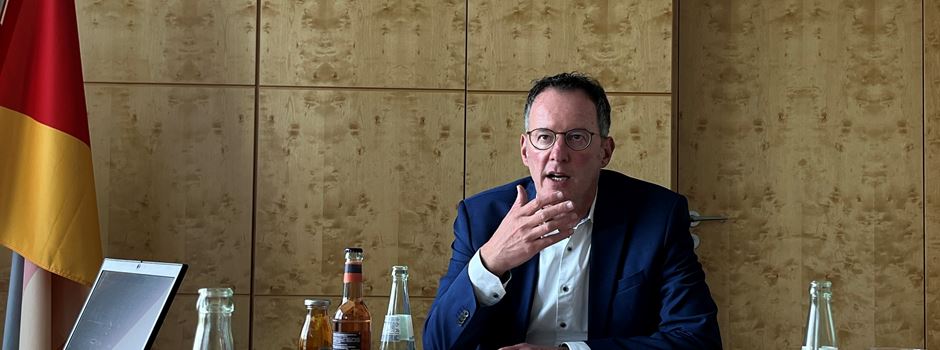Romiguières (France) (AFP) – In the south of France, farmers are demonstrating their imagination to cope with drought: while some are betting on ultra-modern greenhouses, others are selecting plants that can withstand the lack of water and produce more resistant plant lines .
Can a tomato plant practically devoid of water reach maturity and, moreover, produce offspring which, in turn, can almost completely do without watering?
For Nadia Bertin, research director at the National Research Institute for Agriculture, Food and the Environment (Inrae), it is “undeniable” that “the memory effect exists at an epigenetic level”, the science that studies just like the environment of a living being, animal or plant, can change its genes in a transmissible way.
“On the other hand, the yield is no longer the same. That it is a lever to combat drought is not proven », the researcher immediately warns.
“It all depends on the purpose of the crops, industrial or otherwise,” he adds.
On his two small farms – eight and two hectares, in the north of Hérault, in Olmet-et-Villecun and Romiguières-, Pascal Poot, a 60-year-old market gardener, had to deal with a permanent shortage of water. accentuated this year by a long heat wave, certain that “the plant learns” from its experiences, that it “keeps them in memory”.
“My land was cheaper because there was no water”. The ground was rocky, shallow and “hard as concrete. So I had to adapt, and so did the plants, “he told AFP, straw hat on, thick mustache and goatee.
Taking as a model the weeds “that no one has ever watered”, he bets to supply his crops with water only once, during sowing, then leaving them alone, convinced of their ability to draw water from the depths.
Its tomatoes, aubergines, peppers, melons, cucumbers and courgettes flourish on cracked earth or even on a pile of stones. “A huge and constant work of the land (is necessary) for it to be fertile,” he agrees however.
“The plants got used to growing without watering,” he says. “If they survive, the seeds of the next generation will be more resistant, and so on,” adds the greengrocer, who specializes in the sale of seeds and seedlings of his vegetables in shops and on the internet, including several “heirloom tomato varieties that resist well. Drought.
In Uchaux, in the north of Vaucluse, André Bernard also produces vegetables, including tomatoes for industry, but on a much larger scale.
For four years, part of its production has been carried out in large greenhouses equipped with solar panels, originally designed to protect its vegetables from hail and wind, but which have proved their usefulness even in the hot season. In greenhouses “we are able to produce better and use less water”.
Thanks to a “very controlled” irrigation, made of drop by drop in the soil and occasional nebulisations, it was possible to lower the temperature a little and maintain the hydrometry, specifies this authoritative farmer, president of the National Interprofessional Society of tomatoes destined for to the elaboration (Sonito).
On the open field, however, André Bernard admits he has “encountered many difficulties” this year, despite the irrigation possibilities offered by the nearby Rhone.
“Due to the heat wave, yields have decreased and plant conditions are severely degraded,” he notes.
The modern irrigation techniques he uses, with sensors in the ground and computer programs that calculate the need as closely as possible, have enabled him to reduce his water consumption “by 10 to 20 times” compared to his beginnings in the 1980s.
But it’s not even worth thinking about doing without irrigation entirely for crops, he argues.
“I know that there are techniques that allow us to produce little” without irrigation, “but for us, if we want to be able to produce what consumers expect at a reasonable price, without irrigation, it is not possible”.
© AFP
Read also
Climate disasters: Fesneau promises “national solidarity” to farmers
Charles Hervé-Gruyer, pioneer of permaculture and resilience: “the garden is probably the most useful act we can do for the planet”
–


